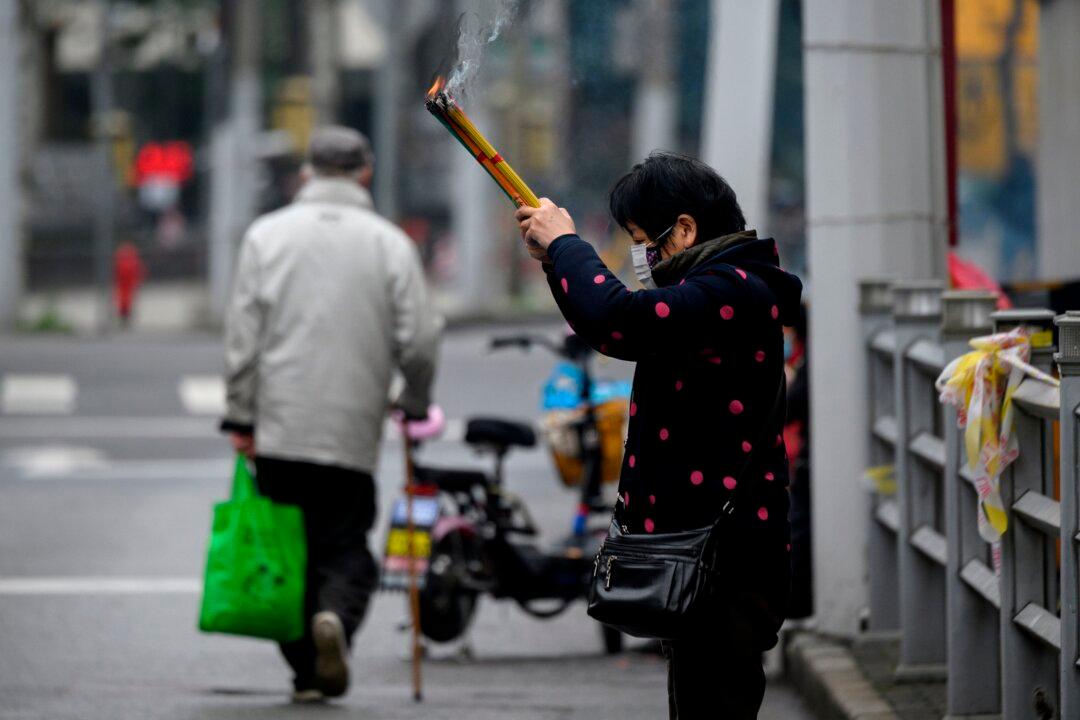The municipal government in Xiaogan City of China’s Hubei Province announced five new measures to battle the coronavirus (COVID-19) outbreak.
According to a post on the government’s official Weibo, an online platform similar to Twitter, all residents are now forbidden from leaving their homes. Residents who are sick or pregnant and need to go to the hospital must leave their homes at a determined time slot and travel on a predetermined route. People who violate the measure will be detained for 10 days.





